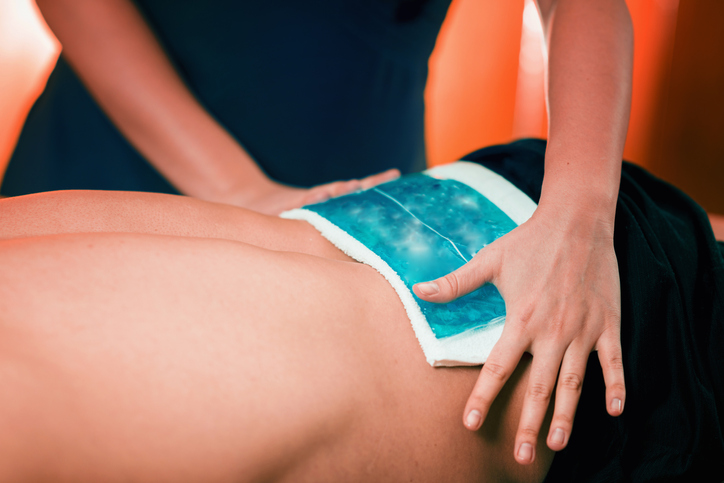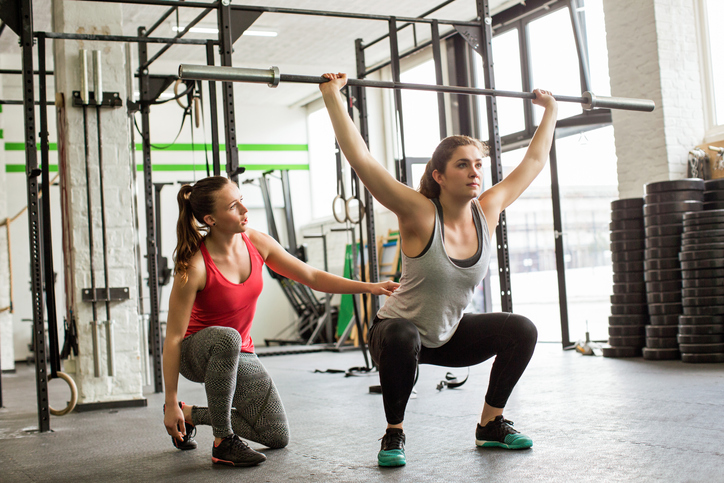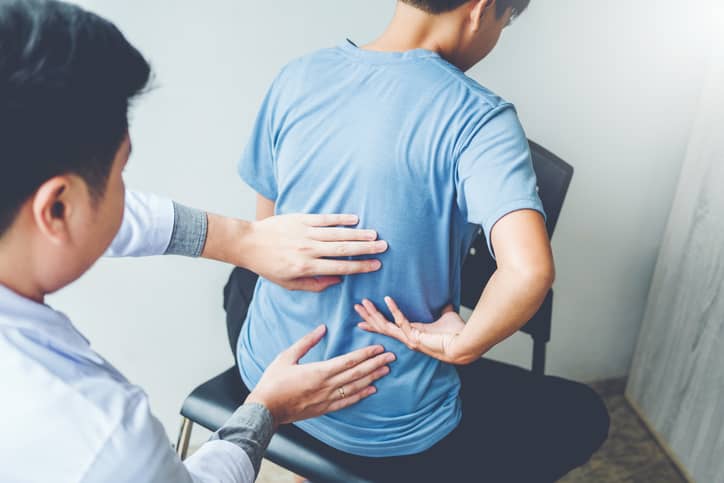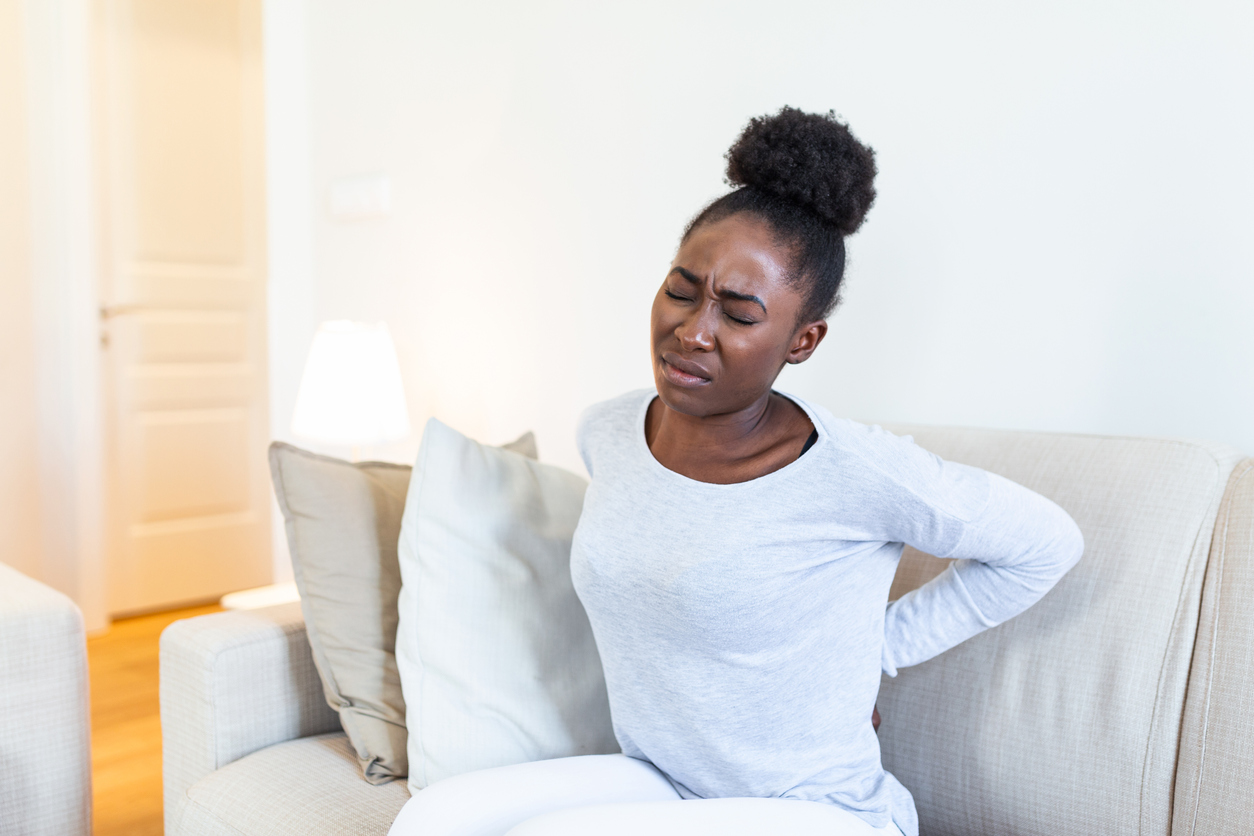Pain in your back after lifting weights isn’t usually serious. It’s normal to get sore muscles after you start a new exercise routine, or if you’ve pushed yourself harder than usual when exercising.
However, if the pain persists or feels worse than normal after lifting weights, it’s possible that you’ve hurt your back.
Lifting is a common cause of back problems. Picking up something heavy, or twisting or bending awkwardly as you lift, can result in pain and injury. And overstretching or putting too much force on your body during exercise can strain a muscle in your back.
Read on to learn how to ease a muscle strain in your back, stop your injury from getting worse, and lift weights safely in the future – plus, when you should get medical advice.
How to ease symptoms of a muscle strain
If you’ve strained a muscle in your back, you’re likely to feel pain, and tenderness when you touch the affected area. In some cases, you may also notice swelling or bruising.
If your muscle strain isn’t severe (see ‘When to see a doctor’, below), you should start to feel better in a few days. There are also things you can do at home to help – try the following for the first couple of days:
- rest – stop exercising and try to take it easy as much as possible
- ice – apply an ice pack to the painful area for up to 20 minutes, every 2 to 3 hours (you can use a bag of frozen vegetables wrapped in a towel)
- protect – you might want to wear a back support to protect your back
Once you find that the pain is easing, you should start to move around gently and slowly, to stop your muscles and joints getting stiff.

How to stop a muscle strain from getting worse
As well as taking the steps above to ease the pain of a muscle strain, it’s important to avoid doing anything that might make your injury worse. In the first 2 or 3 days after straining your back, you should avoid:
- heat – including hot baths, showers, heat packs or rubs
- alcohol
- running
- massage
You may also want to take simple painkillers to ease the pain. They aren’t suitable for everyone, however, so speak to your pharmacist or doctor for advice about taking painkillers safely.
You should also speak to your doctor if your back strain isn’t getting better, as they may be able to suggest treatments to help.
How to lift weights safely to avoid hurting your back
Lifting weights incorrectly not only leads to injuries, but it also stops you from getting the full benefits from your workout.
You should always lift in a slow and controlled way, and only lift an amount of weight that you’re comfortable with. In general, you should avoid hunching or arching your back, and try to keep your spine in a neutral position. You may like to consider getting the advice of a personal trainer or exercise coach, if you’re new to lifting weights.
Squat lifts – lifting weights from a squatting position – can often cause injury if they’re done incorrectly. The most common mistake is to put too much pressure on the lower back. Instead, all the effort should come from your leg muscles, and you should keep your back straight, not rounded.
Lat pulldowns – pulling a weighted bar down from above you – are another common source of injury. If you pull the bar down behind your neck, you have to bend your head forward, putting a strain on your neck and back. So make sure you pull the bar down towards your chest instead.

When to see a doctor
Most of the time, your back will get better on its own. However, it’s a good idea to speak to your doctor if the pain:
- doesn’t start to improve within a few weeks
- keeps you from doing your usual activities
- is severe, or getting worse
You should get medical help straight away if you have back pain and:
- you heard a popping or snapping sound when you hurt your back
- you have weakness in your legs, or any leg or foot muscles
- you have a swelling in your back
- you have numbness around your genitals or buttocks
- you have trouble peeing
- you lose control of your pee or poo (incontinence)
- the pain is worse at night
- you have a high temperature (38C or higher)
- you have unexplained weight loss
Key Points
- lifting is a common cause of back pain, and can result in a muscle strain
- you can ease the pain of a muscle strain by resting and applying ice
- avoid heat, alcohol, running and massage to prevent further injury
- it’s important to lift weights correctly, in a slow and controlled way
- seek medical help if your back pain is severe or doesn’t ease within a few weeks, or you have any of the warning signs above






